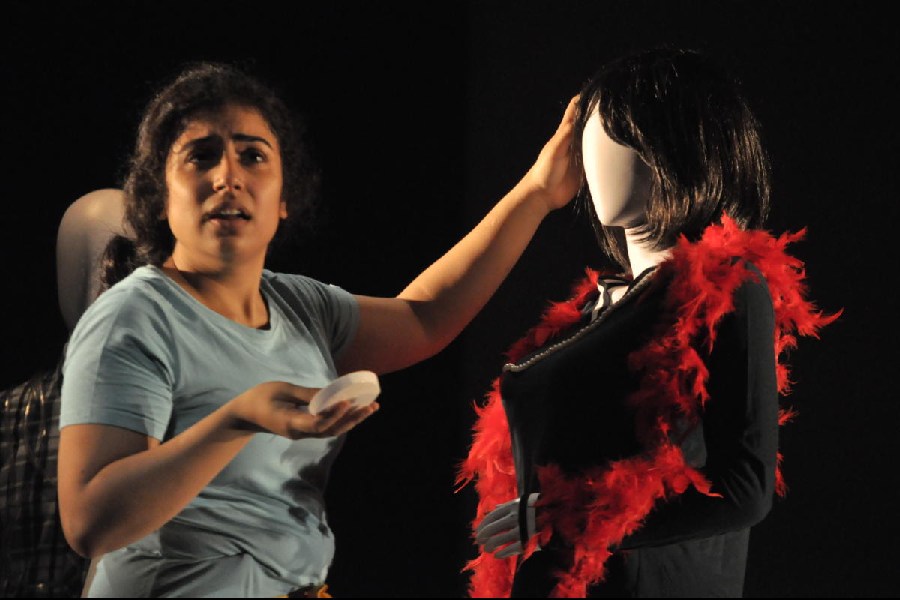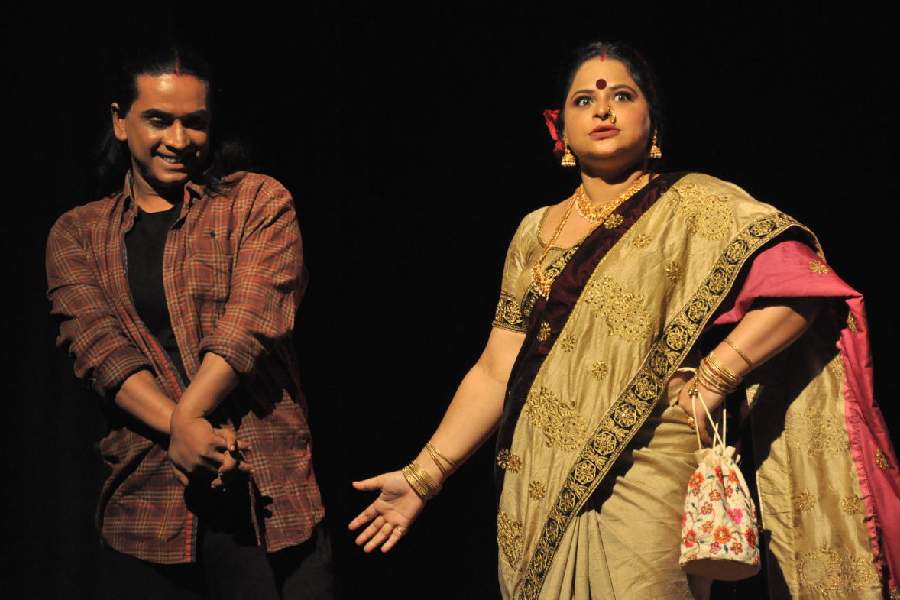Ever since Nandikar’s National Theatre Festival lost its sheen, the National Theatre Festival, hosted by Minerva Natya Sanskriti Charcha Kendra under the aegis of the department of information and cultural affairs, West Bengal, has emerged as the most attractive alternative for the followers of contemporary Indian theatre in Calcutta. However, the sixth edition of the festival (September 30-October 6), held at Rabindra Sadan, Girish Mancha and Madhusudan Mancha, fell short of expectations. Although Bengali productions (7 out of the 16 plays that were staged) dominated the entries, all the major theatre states except Manipur were represented at the festival. This reviewer managed to see four and came away dissatisfied.
But the festival had a dignified start. Satish Alekar was flown in from Pune to deliberate on “Playwright’s Theatre — Story of a Theatre Journey between 25th and 75th years of Independence”. After presenting a brief note on his engagement as a playwright, Alekar fielded critical queries posed by this reviewer who moderated the 100-minute session. Besides elaborating on playwriting competitions in Maharashtra, Alekar’s sincere disclosures about the fissure within the Progressive Dramatic Association over the staging of Ghashiram Kotwal and, ultimately, the formation of Theatre Academy to facilitate the production’s successful run spoke volumes about the social
commitment that theatre mostly reflects.

Mirage by Raaga Repertory, Patna
This social commitment was scarcely noticed in the outstation performances. Sutradhar (Hyderabad), led by Vinay Varma, took up Shanker Shesh’s Raktbeej, a sort of morality play on how urban middle-class values give in to the lure of consumerism. But Raktbeej, spurred by strong portrayals by Varma and Poonam Chandna Golechha, the female lead, failed to keep the momentum going. The Delhi-based Unicorn Actors Studio picked up Arthur Miller’s All My Sons (1947); a welcome choice given the group’s impeccable track record with relationship dramas and the skill of the director, Happy Ranajit, to unearth the latent tension in a Miller play. But Ranajit disappoints. He should have adapted the play to the Indian context for better communicability. The young actors lacked maturity. Gauri Dewal, playing Kete Keller, had a few moments, but that was about all. The production required a large tree branch on stage to underline its naturalistic credentials.
There were a few silver linings though. The Mumbai-based Aawara Theatre Group utilised all the paraphernalia of commercial theatre to stage 7:40 Ki Ladies Special (picture, left). Inspired by the true story of a transgender person’s journey from a lower-middle-class upbringing in suburban Calcutta to becoming a dancer-performer in Mumbai’s local trains with a formidable following on social media, this direction by Viren Basoya made an impact. The presence of Pooja Sharma Rekha, on whom the play is based, left a lasting impression.
Mirage (picture, right), a “specially invited performance” in the words of the organisers, was the toast of the festival. Presented by Raaga Repertory (Patna) and directed by Randhir Kumar, this solo act by the supremely spirited Diksha Tiwari followed Ananya Mukherjee’s autobiographical book on surviving cancer, Tales from the Tail End. Kumar’s mastery in designing the space as well as minimalist props contributed to Tiwari’s mature act, swinging effortlessly between agony and ecstasy.










